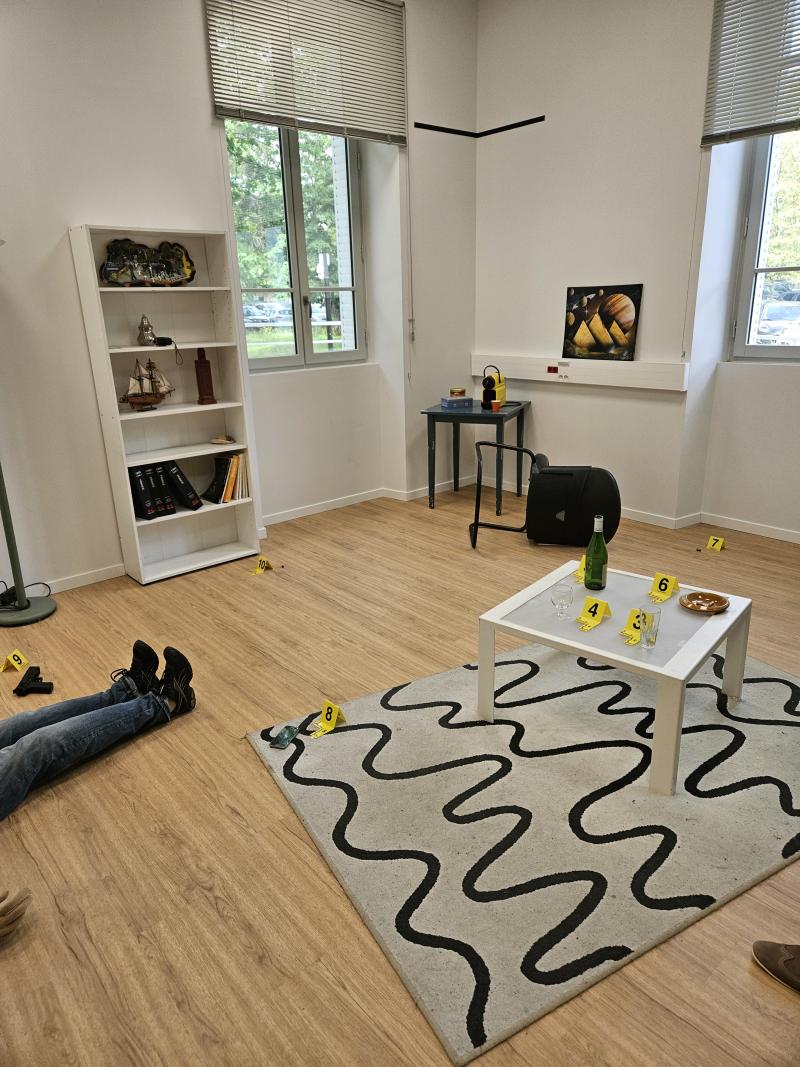

"Every contact leaves a trace" – Edmond Locard, French pioneer of forensic science
In North Macedonia, the unlawful possession, misuse, and trafficking of small arms and light weapons persists to threaten the everyday safety and security of citizens. Amid a complex landscape, the Forensic Science Department of the Ministry of Interior stands as a critical pillar in the fight against firearms-related crime.
Working hand-in-hand with the local crime scene investigation (CSI) units, the forensic experts are not only helping to piece together the puzzles of violent incidents, but also ensuring that justice is served through detailed, science-driven investigations and successful courtroom prosecutions.
To strengthen the role of crime scene technicians in the fight against firearms-related crime, UNDP is developing a state-of-the-art Training and Simulation Facility for Crime Scene Investigation in North Macedonia, which will be located in the Police Training Center in Idrizovo, near Skopje. The initiative is designed to enhance the methods for collection, analysis and examination of firearms-related evidence by field technicians. Through investing in the skills of both new recruits and experienced professionals, the Ministry of the Interior and its Forensic Science Department with support from UNDP aim to ensure more accurate investigations and, ultimately, more reliable and efficient criminal proceedings in cases involving firearms.
International collaboration is essential when introducing advanced, modern solutions aimed at transforming established ways of working. With this vision in mind, the Forensic Science Department and UNDP set out to identify the right partner to help design a new Training and Simulation Facility for Crime Scene Investigation. The search was made possible through the European Network of Forensic Science Institutes (ENFSI), of which North Macedonia is an active member.
Thanks to this network, a collaboration was initiated with the French National Forensic Police Department (SNPS), a globally recognized institution renowned for its expertise in forensic investigations and specialized training. Noteworthy is that France is one of the key initiators of the Western Balkans SALW Control Roadmap, playing a vital role in supporting tangible improvements in firearm control efforts in the Western Balkans, including in North Macedonia.
The initiative is part of broader efforts to advance crime scene investigation and improve firearms-related criminal proceedings in North Macedonia, financially supported by the governments of Germany, Sweden, the Netherlands, France, the United Kingdom, and Norway, along with the overall support of the European Union (EU) through the Western Balkans Small Arms and Light Weapons (SALW) Control Roadmap Multi-Partner Trust Fund.
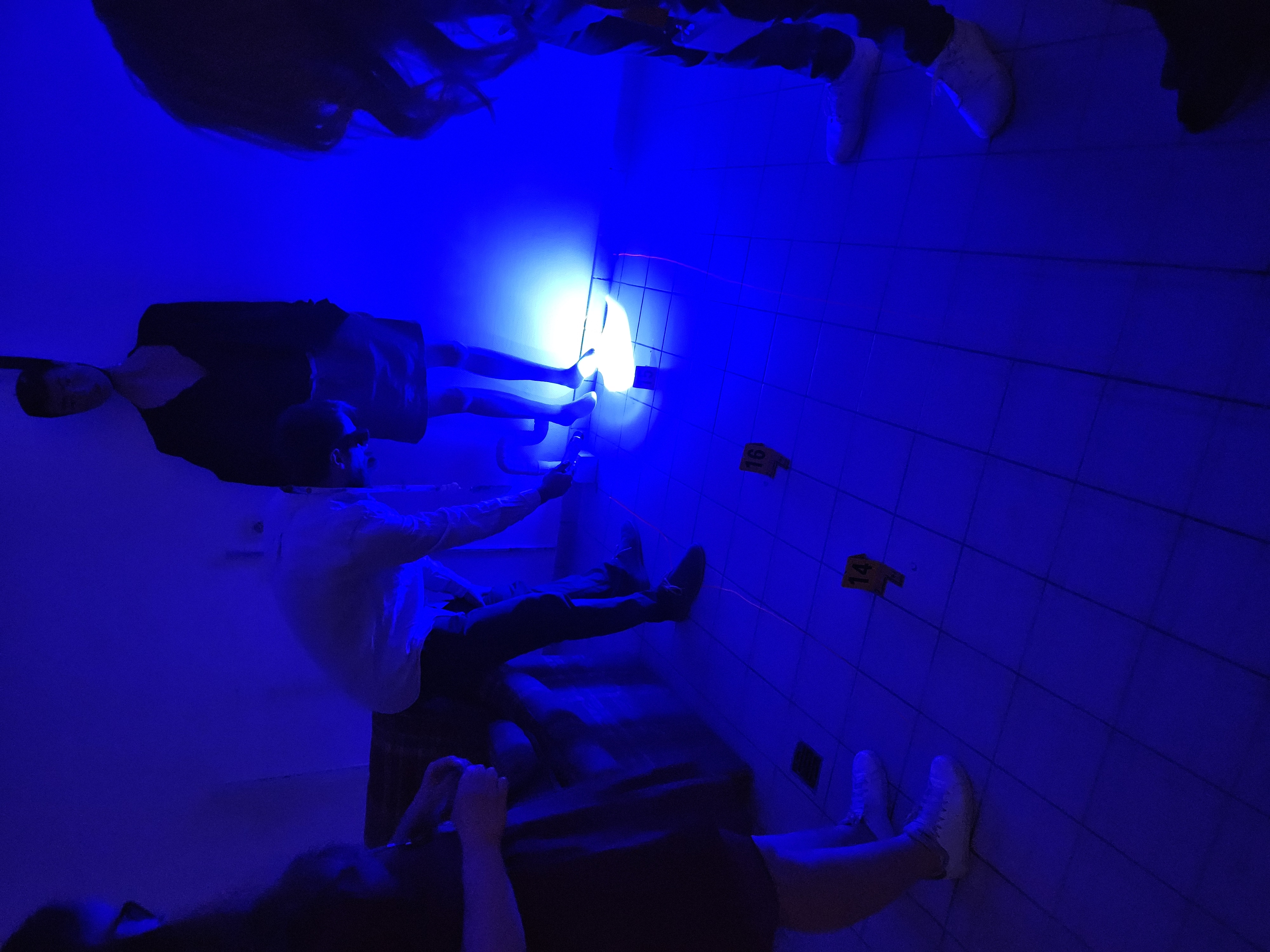
First stop: Learning the French methods via an on-site visit
As part of the ambitious effort to enhance CSI training in North Macedonia, six senior representatives from the Ministry of Interior embarked on a study visit to Écully, France - a small town with a big reputation in forensic science, where the center of the French investigative capacities is located.
Over the course of the visit, the delegation was immersed in the daily workings of France’s renowned French National Forensic Police Department (SNPS). The participants explored the sophisticated systems that support SNPS operations and its seamless collaboration with national police units. Walking through cutting-edge simulation rooms and training grounds, the participants witnessed how future crime scene investigators are rigorously prepared for the complexities of real-world cases.
The visit occurred while the French counterparts were preparing the launch of their National Forensic Police School as of September 2024 - a new institution that aims to integrate modern crime scene investigation practices into training curricula that will serve to prepare new generations of excelling technicians.
From interactive training modules to hands-on simulations, every detail offered valuable insights. The team also examined the Centre’s digital tools used for registering and processing forensic evidence - critical components in modern firearms investigations. A tour of the forensic laboratories gave the participants an up-close look at scientific processes behind crime-solving, while live CSI training sessions revealed how theory meets practice in real time.
The visit not only provided a comprehensive overview of how a world-class forensic facility operates but also served as a source of inspiration. With clearer direction and renewed motivation, the team returned ready to adapt these learnings to North Macedonia’s context – bringing the vision of a cutting-edge CSI Training Facility one step closer to reality.
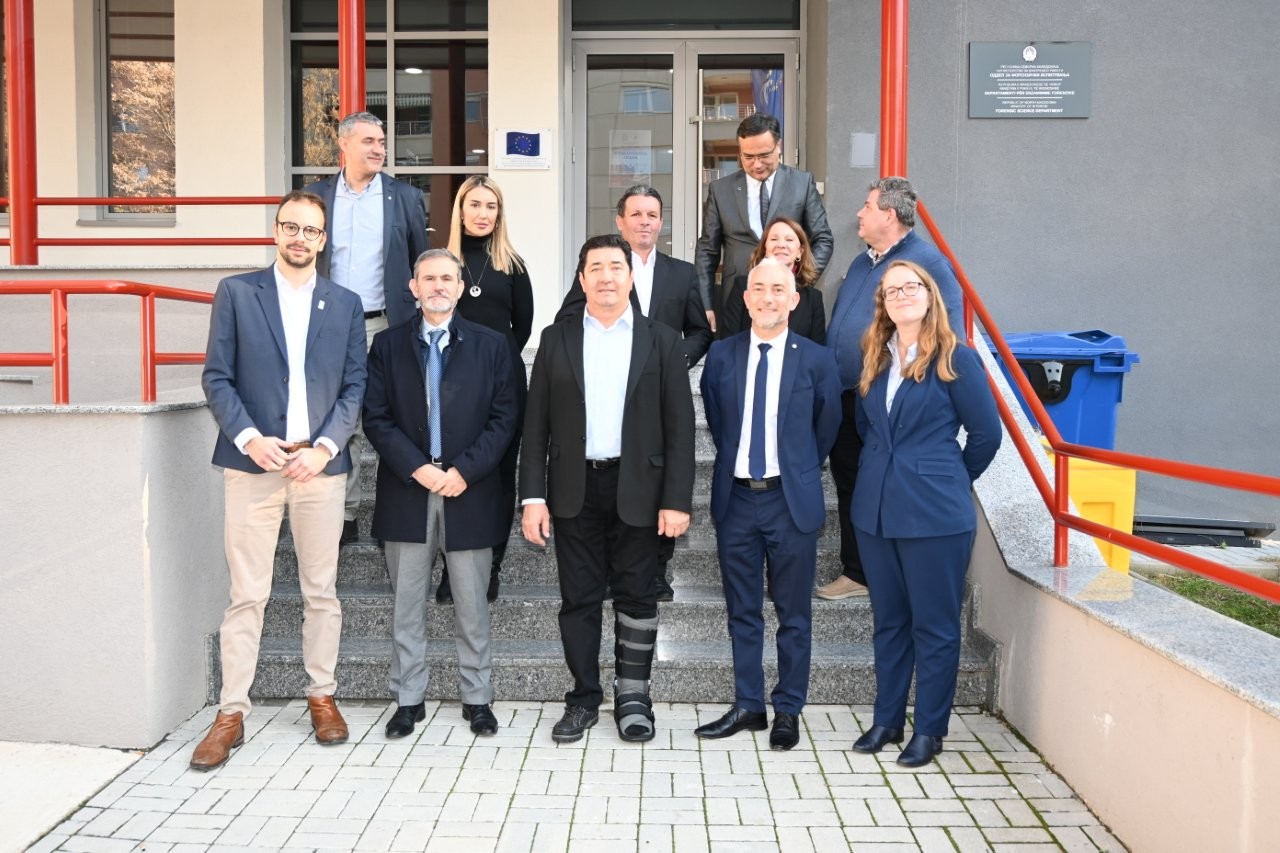
Second stop: Adapting the acquired knowledge to the local context
Building on the momentum from the study visit, the partnership between France and North Macedonia took a significant step forward in the final quarter of 2024, when two experienced forensic experts from France traveled to Skopje.
Over the course of five days, the French experts engaged in a series of strategic meetings and site visits, working closely with representatives of the Ministry of Interior. These sessions served as a platform for meaningful knowledge exchange - offering their counterparts in North Macedonia a clearer view of international best practices, while allowing the French team to gain a deeper understanding of the local context, challenges, and aspirations.
By the end of their visit, the French experts had produced a detailed report with concrete recommendations for the establishment of a training facility in North Macedonia. The aim was clear: to design a crime scene investigation system tailored to North Macedonia’s unique operational environment, built around the concept of a modern training and simulation hub.
In addition, the French experts provided valuable insights for other necessary interventions required to improve the country’s crime scene investigation capabilities, providing further support and advice related to the procurement of specialized equipment for use in the field.
With expertise exchanged and the roadmap becoming clearer, this collaboration continues to evolve - not just as a technical partnership, but as a shared commitment to justice, effective investigations, and the future of forensic science.
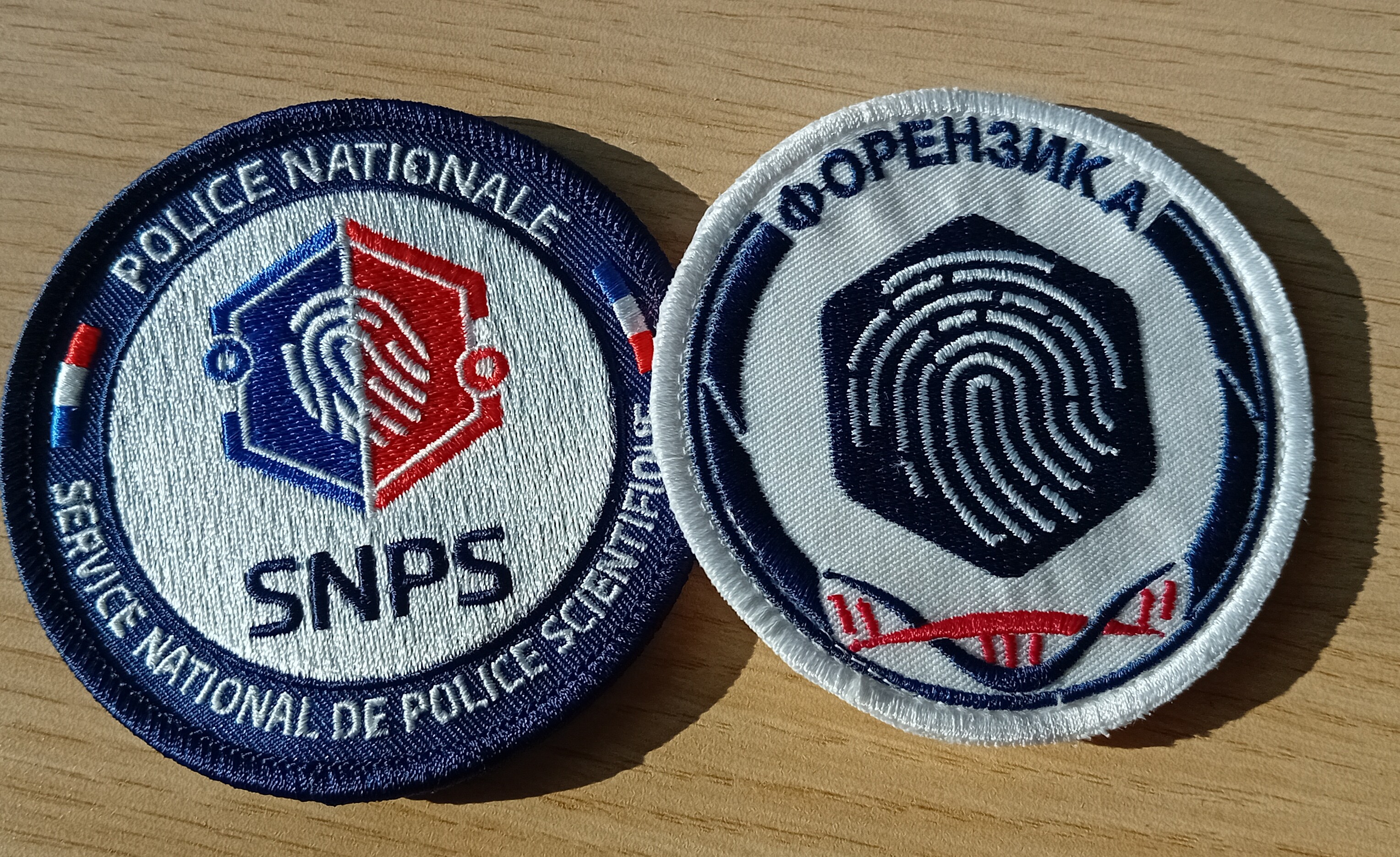
Turning Plans into Progress: The Path Ahead
With the foundation firmly laid through mutual learning, on-the-ground assessments, and expert planning, the collaboration between North Macedonia’s Ministry of Interior, the French National Forensic Police Department, and UNDP has now entered a decisive new phase: implementation.
Equipped with the detailed findings and strategic recommendations developed by the French forensic experts, UNDP and the Ministry of Interior are working hand in hand to bring the vision of a modern CSI Training and Simulation Facility to life. This phase marks the transformation of analysis into action, as the most urgent interventions are prioritized and concrete steps are taken to upgrade forensic training infrastructure, equipment, and systems.
This ongoing partnership represents a long-term investment in institutional capacity, professional development, and public trust. As implementation moves forward, UNDP will continue to serve as a catalyst for coordination, innovation, and sustainability, ensuring that the impact of this initiative reaches far beyond the training grounds of Idrizovo.
Together, these efforts are shaping a future where North Macedonia’s forensic professionals are empowered with the tools, knowledge, and confidence to solve crimes efficiently and uphold the rule of law - one scene, one piece of evidence, one case at a time.
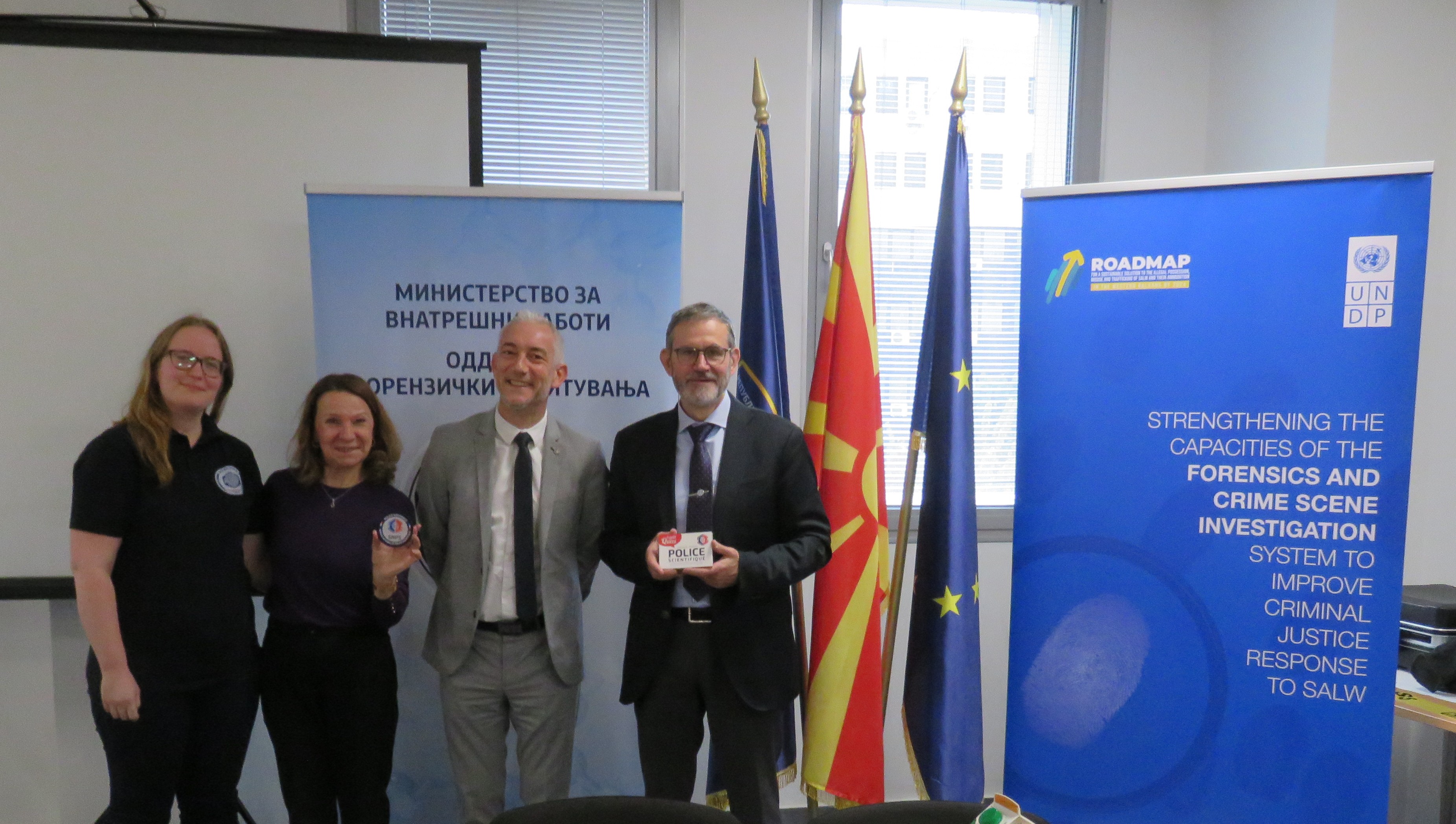
Contribution to the Roadmap goals
Combatting the unlawful possession, misuse, and trafficking of small arms and light weapons through increased investigative capacities is a key aspect of the Roadmap for a sustainable solution to the illegal possession, misuse and trafficking of Small Arms and Light Weapons (SALW), their ammunition and explosives in the Western Balkans by 2030, jointly developed by regional governments with SEESAC’s technical support under the auspices of France and Germany and in consultation with the EU and all other relevant actors.
The project currently implemented in North Macedonia is closely aligned with the goals of the Roadmap, contributing to Goals 2, 3 and 4 of the revised Roadmap. The project works on improving the analytical and investigation capacities of the forensic authorities in North Macedonia in order to increase the speed and reliability of criminal investigations in firearms-related cases, with the final goal of improving the criminal justice response to SALW and creating more violence-resilient communities.
With the support of its donors through the Western Balkans SALW Control Multi-Partner Trust Fund, UNDP has adapted and equipped the Ministry of Interior’s indoor shooting range for ballistic examinations, as well as donated significant quantities of specialized equipment for use in crime scene investigation. It is currently working on upgrading the Incident Recording, Documents and Activities Module (IRDAM) as the key Police Information Management System in the country, as well as implementing efforts for gender sensitization of CSI staff.
UNDP North Macedonia has been dedicated to implementing projects in the area of SALW control since 2019, achieving meaningful results in decreasing the unlawful possession, misuse, and trafficking of firearms through close cooperation with the Ministry of Interior, ultimately enhancing the safety and security of citizens and contributing to a safer Western Balkans region.
Author: Martin Nacevski, UNDP North Macedonia
Originally published on undp.org/north-macedonia